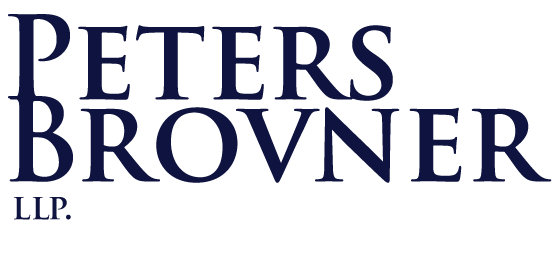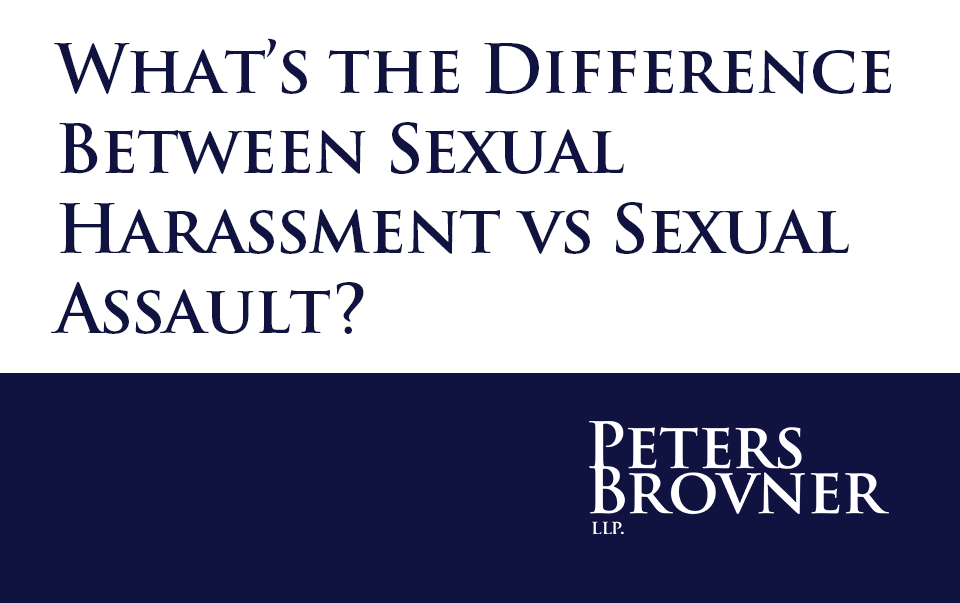Sexual Harassment Investigations
Sexual harassment in the workplace is a form of employment discrimination that violates federal, State and local law in New York. Employers are required to take steps to prevent sexual harassment and, if a sexual harassment claim is made, to take immediate action to address the situation. Moreover, employers are prohibited from retaliating against employees who report sexual harassment.
When allegations of harassment are reported, it is imperative that a company do a thorough and expeditious investigation of those allegations specifically and, more generally, of its HR and anti-harassment protocols to determine: (1) whether the incident occurred and if so the appropriate disciplinary measure for the perpetrator and remedial action needed; (2) whether proper safeguards were in place for preventing and reporting sexual harassment and whether the policies in place were followed; and (3) What actions the company can take to prevent sexual harassment from occurring in the workplace in the future.
Sexual Harassment Investigative Attorneys
When conducting an internal investigation, it is important to have attorneys who are well versed in the intricacies of investigating sexual harassment. Such investigations need to be carefully conducted so that they provide full information to the entity requesting them, including a thorough evaluation of what if anything occurred, what remedial and disciplinary action is needed and what steps should be taken to prevent harassment in the future.
Contact Peters Brovner Today
The lawyers at Peters Brovner have years of experience conducting investigations into sexual harassment and abuse both at the highest levels of government and in their years of private practice.
If your organization has received a report of sexual harassment in the workplace, please contact the lawyers at Peters Brovner for a consultation about conducting an internal investigation of the harassment claims.
ph: 917-639-3270
email: info@petersbrovner.com
What Is Sexual Harassment?
Generally, sexual harassment happens in one of two ways: Quid Pro Quo or Hostile Work/School Environment.
“Quid pro quo” literally means “this for that” in Latin. Quid pro quo sexual harassment occurs when someone in a position of authority (i.e. a manager, supervisor or teacher or coach) seeks sexual favors from a worker/student in return for some type of benefit — such as a raise, better hours, promotion, high grades, access to educational programs etc. — or to avoid some type of detriment, like a pay cut, demotion, poor performance review, poor grades, firing etc.
A hostile work environment is one where, for example, a supervisor, manager, or coworker, by words or actions including unwelcome sexual advances, negatively impacts another employee’s ability to work. Any employee can be responsible for creating such a hostile work environment.
Who Can Be Sued For Sexual Harassment?
It is sometimes possible to bring a civil lawsuit against not only the perpetrator of sexual harassment, but also the harasser’s employer at the institution where the sexual misconduct occurred or where the harasser was employed.
When can Employers be held liable for sexual harassment
Under Federal Law, an employer is liable for harassment by a supervisor that results in a negative employment action such as termination, failure to promote or hire, and loss of wages. If the supervisor’s harassment results in a hostile work environment (but no specific negative employment action), the employer can avoid liability only if it can prove that:
1) it reasonably tried to prevent and promptly correct the harassing behavior; and
2) the employee unreasonably failed to take advantage of any preventive or corrective opportunities provided by the employer.
Additionally, an employer will be liable for harassment by non-supervisory employees or non-employees over whom it has control (e.g., independent contractors or customers on the premises), if it knew, or should have known about the harassment and failed to take prompt and appropriate corrective action.
New York State and City statutes provide even greater protections. Most notably, they eliminate the requirement that the harassment be “severe and pervasive” thus making claims easier to prove.
In another important way, the New York City’s Human Rights Law goes further than Federal law in holding employers liable for sexual harassment. Under Title VII, employers may be vicariously liable for their employee’s discriminatory conduct, but such claims are subject to an affirmative defense that the employer has enacted sufficient policies and procedures to respond to complaints of discrimination. No such affirmative defense exists under the City HRL. Rather, an employer can be vicariously liable “based upon the [discriminatory] conduct of [its] employees or agents” under the City HRL “where:
1) the employee or agent exercised managerial or supervisory responsibility; or
2) the employer knew of the employee’s or agent’s discriminatory conduct, and acquiesced in such conduct or failed to take immediate and appropriate corrective action . . . ; or
3) the employer should have known of the employee’s or agent’s discriminatory conduct and failed to exercise reasonable diligence to prevent such discriminatory conduct.
Retaliation
Both federal and local law prohibit retaliation against employees or job applicants who make good faith complaints about sexual harassment. Indeed, according to the Equal Employment Opportunity Commission (EEOC), retaliation is the most frequently alleged basis of discrimination in the federal sector and the most common discrimination finding in federal sector cases.
Federal law prohibits punishing job applicants or employees for asserting their rights against employment discrimination including harassment.
New York State and City Human Rights Laws similarly protect against retaliation. According to the New York City Commission on Human Rights, it is illegal for an employer to take action against an employee because the employee opposes or speaks out against sexual harassment in the workplace. Such retaliation can manifest through direct actions, such as demotions or terminations, or more subtle behavior, such an increased workload or being transferred to a less desirable location. The NYC Human Rights Law protects individuals against retaliation who have a good faith belief that their employer’s conduct is illegal, even if it turns out that they were mistaken.
When should you conduct a sexual harassment investigation at your company/nonprofit?
An internal investigation is necessary whenever there has been a sexual harassment complaint at your company/nonprofit. To begin with, the specific allegations need to be expeditiously investigated so that the company or nonprofit can determine if remedial and/or disciplinary action is necessary. Moreover, only a thorough internal investigation can determine if any systemic problems with HR policies and implementation of those policies exist. If they do exist, they should be remedied immediately.
What steps should you take when conducting an investigation into sexual harassment?
There are numerous steps that a company or nonprofit should take when investigating a sexual harassment complaint. These can include:
- Witness interviews
- Review of internal policices to determine (1) if they are sufficient; (2) if they were followed; (3) if employees are being properly trained on the policies
- Creation of a compliance plan going forward
- Responding to government regulators and prosecutors if necessary;
- Responding to civil litigation if necessary.
Blog Posts
and Media

